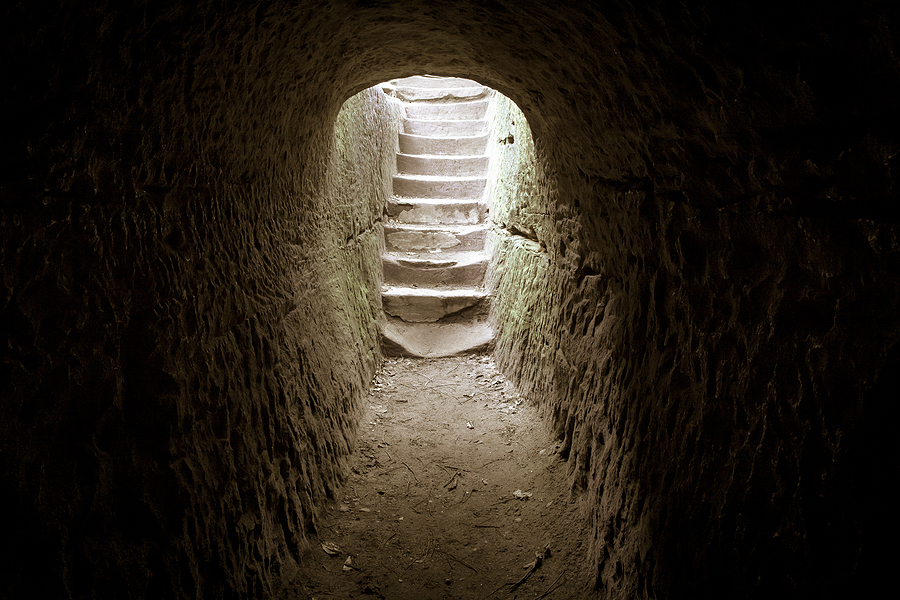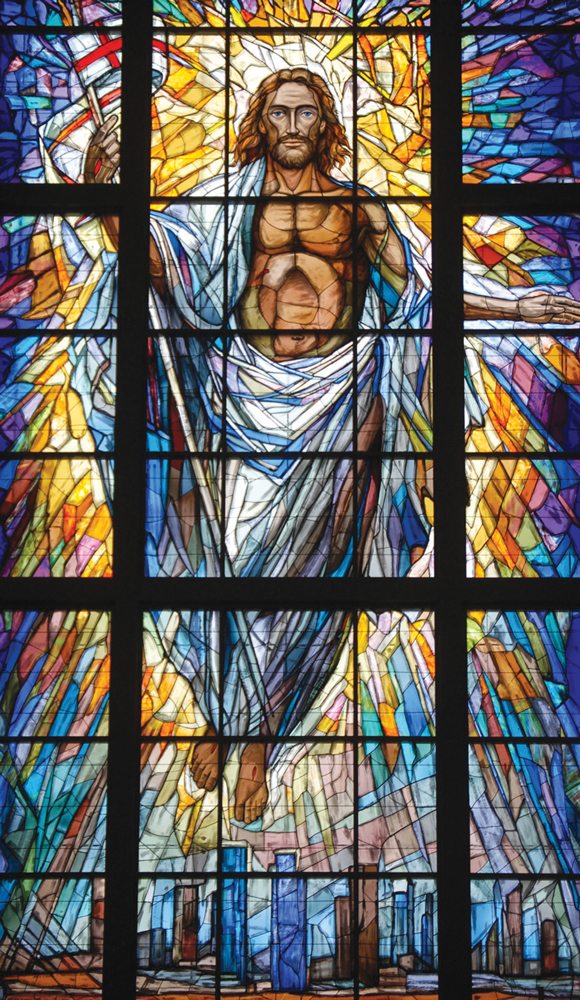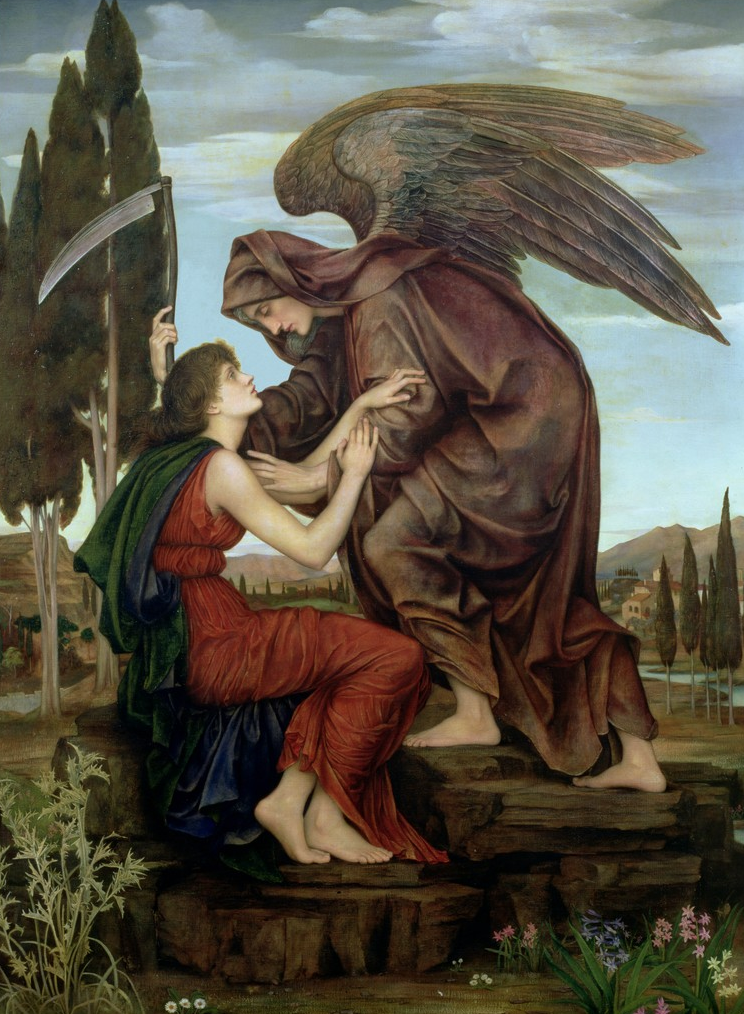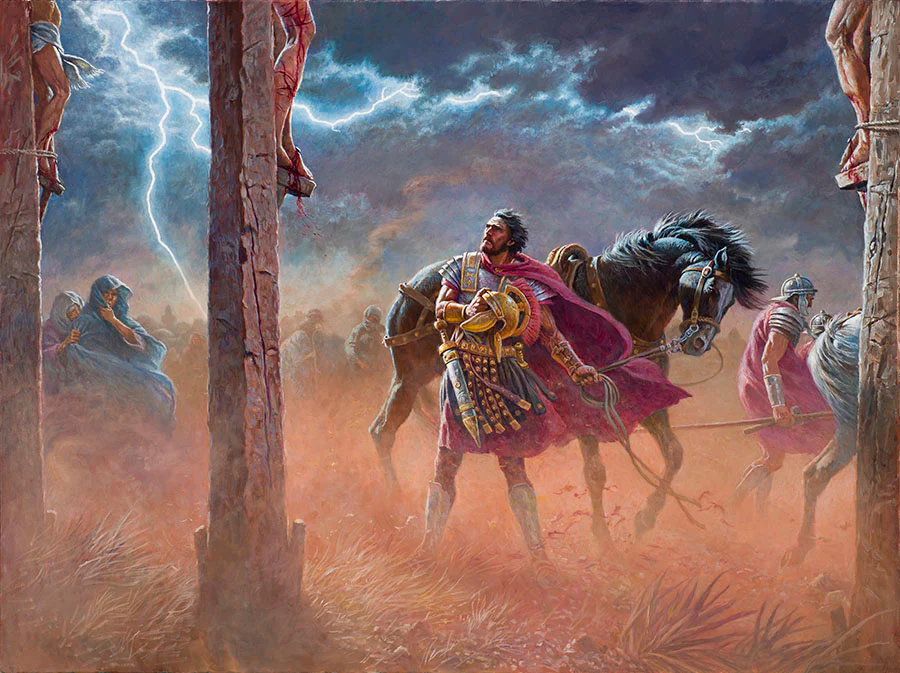
Holy Saturday: the anguish of an absence
…Holy Saturday: the day God was buried; is not this the day we are living now, and formidably so? Did not our century mark the start of one long Holy Saturday, the day God was absent, when even the hearts of the disciples were plunged into an icy chasm that grows wider and wider, and thus, filled with shame and anguish, they set out to go home, dark-spirited and annihilated in their desperation they head for Emmaus, without realizing that he whom they believed to be dead is in their midst?
God is dead and we killed him: are we really aware that this phrase is taken almost literally from Christian tradition and that often in our Viae Crucis we have made something similar resound without realizing the tremendous gravity of what we said?
- We killed him, by enclosing him in the stale shell of routine thinking, by exiling him in a form of pity with no content of reality, lost in the gyre of devotional phrases, or of archaeological treasuries;
- We killed him through the ambiguity of our lives which also laid a veil of darkness over him: in fact, what else would have been able to make God more problematical in this world than the problematical nature of the faith and of the love of his faithful?
- The divine darkness of this day, of this century which is increasingly becoming one long Holy Saturday, is speaking to our conscience. It is one of our concerns. But in spite of it all, it holds something of comfort for us.
- The death of God in Jesus Christ is at the same time the expression of his radical solidarity with us. The most obscure mystery of the faith is at the same time the clearest sign of a hope without end.
And what is more: only through the failure of Holy Friday, only through the silence of death of Holy Saturday, were the disciples able to be led to an understanding of all that Jesus truly was and all that his message truly meant. God had to die for them so that he could truly live in them. The image they had formed of God, within which they had tried to hold him down, had to be destroyed so that through the rubble of the ruined house they might see the sky, him himself who remains, always, the infinitely greater. We need the silence of God to experience again the abyss of his greatness and the chasm of our nothingness which would grow wider and wider without him.
Four Meditations on Holy Saturday-Cardinal Joseph Ratzinger
The great silence
Monastics proclaim a great silence after their last meal and prayers. No word will be spoken until the first prayer the following morning. Sleeping, the monks place their trust in the Lord. Father Steve Grunow writes: …the great silence is not just a time of rest, of passivity, but the time where, while human labor ceases, God remains active and working, though unseen and most often unheard, speaking in the stillness with the eloquence of his Eternal Word. The monks rest, knowing that God in the great silence abides.”
Just so, we know that Jesus is far from passive today. Rather, before ascending to the Father, he descends to the silence of the tomb. In another of his magnificent meditations on this day Cardinal Ratzinger wrote:
“It was vital to defend the holy stupidity of the love of God who chose not to proclaim something powerful but to travel the road of powerlessness to send our dream of power to the gallows and defeat it from within.“
Four Meditations- Cardinal Joseph Ratzinger
Imagine how our first parents feel when they hear his voice?
It’s a voice they could not have forgotten, is it not?
He who breathed life into them.
He who walked with them during the breezy time of the day.
What terror must have struck the heart of Adam!
Eve’s shame would have eclipsed all of humanity’s. She knew what we can barely glimpse: the irresistible essence of divinity. But these are the words they hear from Jesus when he breaks open their darkness and reopens the doors of paradise…
“Look at the spittle on my face, which I received because of you, in order to restore you to that first divine inbreathing at creation. See the blows on my cheeks, which I accepted in order to refashion your distorted form to my own image.
‘See the scourging of my back, which I accepted in order to disperse the load of your sins which was laid upon your back. See my hands nailed to the tree for a good purpose, for you, who stretched out your hand to the tree for an evil one.
`I slept on the cross and a sword pierced my side, for you, who slept in paradise and brought forth Eve from your side. My side healed the pain of your side; my sleep will release you from your sleep in Hades; my sword has checked the sword which was turned against you.
‘But arise, let us go hence. The enemy brought you out of the land of paradise; I will reinstate you, no longer in paradise, but on the throne of heaven. I denied you the tree of life, which was a figure, but now I myself am united to you, I who am life. I posted the cherubim to guard you as they would slaves; now I make the cherubim worship you as they would God.”

The Resurrection: Co-Cathedral of the Sacred Heart
The dream of the Rood
This Jesus- this magnificent image of the resurrected Jesus conjures up the warrior I met in a poem known as The Dream of the Rood. The anonymous Anglo-Saxon poet describes the Christ created by an Italian artist in the stained glass window high in the bell tower of the Co-Cathedral of the Sacred Heart facing downtown Houston.
Written somewhere before the 9th century in a warring culture; in that respect very similar to our own.
Speaking as the tree upon which Christ is nailed, the tree describes Christ not as piteous or powerless. But as a warrior, as a hero striding forth to mount the tree-the cross.
On shoulders men bore me there, then fixed me on hill;
fiends enough fastened me. Then saw I mankind’s Lord
come with great courage when he would mount on me.
Then dared I not against the Lord’s word
bend or break, when I saw earth’s
fields shake. All fiends
I could have felled, but I stood fast.
The young hero stripped himself–he, God Almighty–
strong and stout-minded. He mounted high gallows,
bold before many, when he would loose mankind.
I shook when that Man clasped me yet I dared not bend to
the earth, fall to the ground for fear; to stand fast was my duty.
A rood was I reared up, bore the rich King,
the Guardian of heaven; I dared not give in.
They drove me through with dark spikes, deep wounds could be seen upon
me, open envy-thrusts, yet not a one of them dared I harm.
They mocked us both together. I was bedrenched with blood
spilled from the side of the Man as he sent up his spirit.
On that mount I endured many agonies,
words of wrath, saw racked in pain
the God of hosts. Then a gloom fell
and clouds shrouded the corpse of the all-Wielder,
its shimmering sheen; a shadow went forth,
wan, under the clouds. Then all God’s creatures wept,
lamented the King’s fall: Christ was on the cross. …


